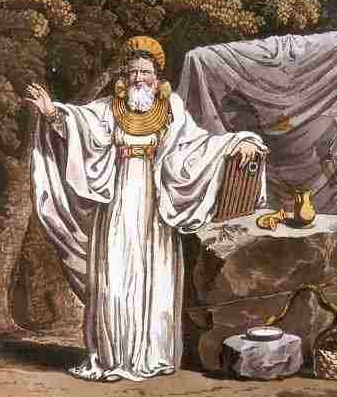The Druids were the caretakers of Celtic culture. When he came into contact with the Druids during his conquest of Celtic Gaul, Julius Caesar confirmed their religious role:
The Druids officiate at the worship of the gods, regulate public and private sacrifices, and give rulings on all religious questions. Large numbers of young men flock to them for instruction, and are held in great honour by the people.

Had it not been for the Celtic religious ban on committing the wisdom and learning of the Druids to the written word, our understanding of the Celtic Pantheon would be much greater today than it is.
Alas too few texts have survived the savagery and wanton destruction directed at the Celts over the centuries especially during the emergence of the modern nation states of England and France and the wholesale destruction in Ireland during its occupation. The surviving written Celtic source documents are due to accidents of history and geography, mainly Irish and Welsh in origin. The Folkloric traditions of all the Six Nations augment the written record and provide an important source of our knowledge of the Celtic pantheon.
This article is the second part of our survey of the Gods and Goddesses of the Celtic Pantheon. Read Part I here.